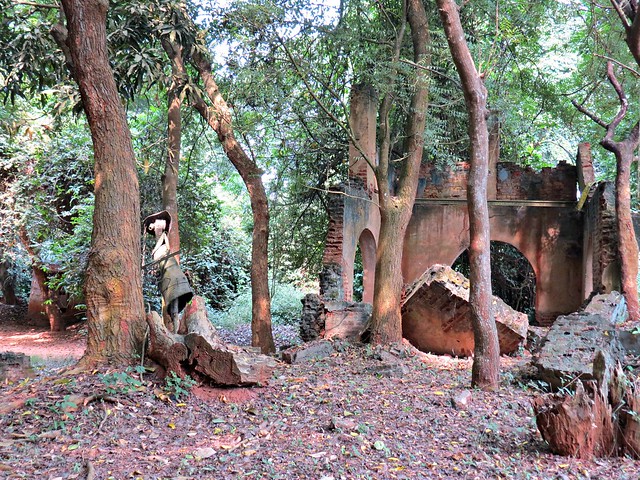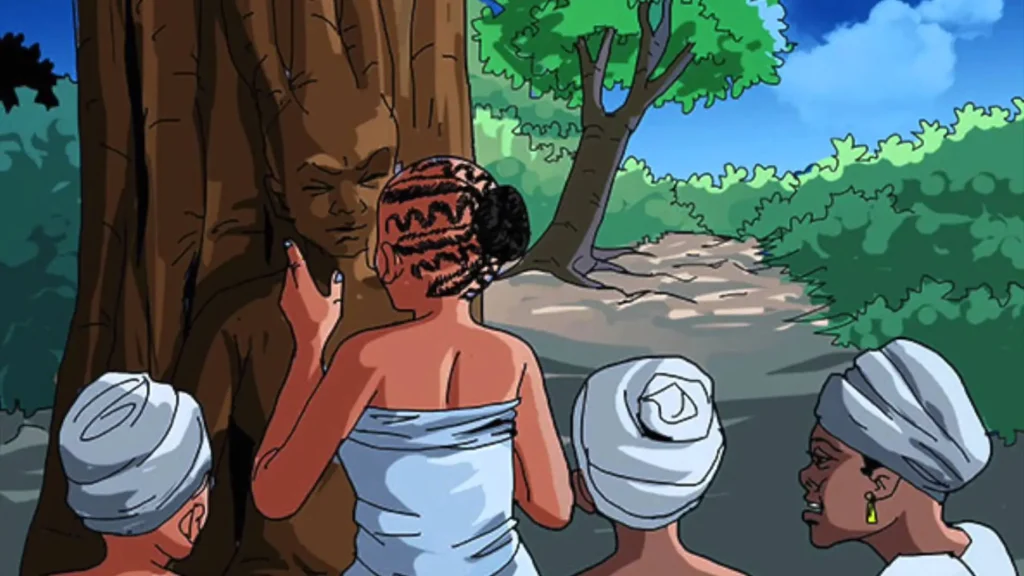Once upon a time when our parents used to chase us away from big trees, especially the popular tree called ‘iroko.’ According to them, the tree is the spot where witches and wizards meet for discussions, and because they can’t be seen with ordinary eyes, we were advised not to move closer to the tree.
Growing up, we were told that the tree has supernatural powers and could make people disappear if touched or tampered with. In the past, iroko trees were not seen in the compound or village square, because they live in the forest.
Is Iroko Oluwere a Human Being?
Iroko Oluwere is a big tree in the forest and can be traced to the Yorubaland. History has it that the mighty tree was first discovered in a village called ‘Ajangbe’ and it became the friend of the people. The Villagers would visit the tree regularly to make requests and seek favors.
Sooner, it became the tradition of people especially women to plead to the spirit of the tree and because the iroko oluwere was kind, he granted them their wishes. Barren women used to visit the tree regularly for the fruit of the womb, and in exchange, they present a gift to the tree as a thanksgiving offering.

The Relationship between Iroko Oluwere and Oluronbi
There was a woman named Oluronbi in Ajangbe. She had been barren for years until she discovered Iroko Oluwere. She pleaded to the spirit for a child and made a vow to give the tree the child if her request was granted. Oluwere was pleased to hear her and she gave her a child.
Months later, Oluronbi gave birth to a baby girl and named her Aponbepore which means “the one as red as palm oil.”
Elated Oluronbi forgot to fulfill her pledge to Oluwere. After some years, Aponbepore had grown and Oluwere waited for Oluronbi to fulfill her vow, but she didn’t.
Angry Oluwere full of rage went to Oluronbi’s house and dragged Aponbepore away. When the villagers saw that the spirit had taken Aponbepore, they began to sing a song to appease the spirit of Oluwere.
The song goes thus;
Call: Onikaluku jeje ewure (everyone promised to offer a goat)
Response: Ewure, ewure (goat, goat)
Call: Onikaluku jeje aguntan (everyone promised to offer a sheep)
Response: Aguntan bolojo (A fleshy sheep)
Call: Oluronbi jeje omo re (Oluronbi promised to offer her child)
Omo re apon bi epo (Her child who is as light skinned as palm oil)
All: Oluronbi O! (Oluronbi O!)
Jo’in jo’in (make that up)
Call: Iroko (a mighty tree in the forest)
Response: Jo’in jo’in (make it up)
Call: Oluronbi O! (Oluronbi O!)
Response: Jo’in jo’in
All: Iroko
Jo’in jo’in

The Lesson of the Myth
In the Yoruba culture, elders make up stories to teach morals. These stories are narrated to scare children in those years, so as to caution them and promote the cultural values of the Yorubaland.
The popular adage “eni ti a se loore ti ko dupe, o dabi ole akonileru lo (he who does not appreciate is like a thief who steals)” was deduced from the story of Oluronbi and iroko Oluwere. The moral of the story is that people should not make promises they don’t intend to keep.






Comments
Adekeye Ademola
4 years agoThanks for the story. At least, I got exactly 💯 what I was looking for. I do really appreciate your efforts.
Ogunnubi
3 years agoPls can you give me directions to this place i want to feed oluwere iroko